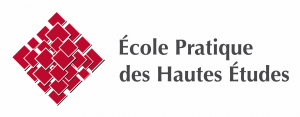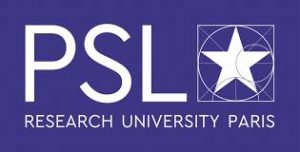Welcome to the Mills Research Team at EPHE, PSL Université Paris, within CRIOBE laboratory.

The research interests of the Mills Research Team are broad and varied within the realm of evolutionary biology, but use mainly field manipulation experiments combined with laboratory experiments, as well as observations of natural variation, to determine the impact of environmental stressors on organismal fitness.
Keywords: Evolution; Behaviour; Physiology; Acclimation; Endocrinology; Artifical Selection
To see what we get up to in the field and lab, go to the NEWS page for regular updates.
We have five main research areas:
- Effects of environmental change on coral reef organisms. We investigate how both climate change (anemone bleaching) and anthropogenic stressors (motorboat-noise, tourism and Artificial Light at Night - ALAN) affect behaviour, stress hormones, reproductive hormones and metabolic rate in reef fish and whether they show the capacity for habituation. Model species include anemonefish and the cleaner-client interaction.
- Stress response phenotypes. It is not known if individual variation of the stress response represents distinct stress response phenotypes, whether all phenotypes have equal fitness or whether stress response phenotypes have the potential to evolve under natural selection. We focus on an iconic coral reef organism, the anemonefish, to test within- and between-individual responses to environment change in the wild, as well as simultaneously measuring a range of life-history traits, including reproduction and longevity.
- Understanding larval dispersal. Using anemonefish as our model species, we aim to understand larval dispersal by determining the separate and combined roles played by the parental phenotype (female size, parental bond duration, behavioural syndromes) and the environment (flow regime, depth, habitat quality).
- Ocean acidification and ocean warming. We are studying a metacommunity based on the marine toxic cyanobacteria, Lyngbya majuscula. We have described the trophic cascade and chemical communication within this metacommunity made up of two herbviores, the sea hare, Stylocheilus striatus, and the gastropod Bulla orientalis, and two carnivores, a nudrirbanch and a crab. We are interested in how ocean acidification and ocean warming will impact chemical communication, behaviour and survival within this metacommunity. We are currently interested in determining whether transgenerational and/or developmental acclimation of the sea hare, S. striatus, to the effects of ocean acidification and thermal stress can mitigate the negative effects on their embryonic and larval development. We are also interested in the competition between this cyanobacteria and coral under OA and warming.
- COTS research. We are looking into the trade offs between reproduction and immunity in the crown-of-thorns seastar, Acanthaster planci, and injection methods using natural substances to control their outbreak.
We belong to the research laboratory of CRIOBE which is based on the island of Moorea in French Polynesia which has immediate access to both fringing and barrier reefs, and from where we can visit all the other high islands and atolls in the region, such as Mataiva atoll shown below. Our research group has just installed a new aquarium facility for rearing clownfish larvae to adulthood and for which we are very proud!
Contact Suzanne Mills
Laboratoire d'Excellence “CORAIL”
USR 3278 CRIOBE CNRS-EPHE
Centre de Recherche Insulaire et Observatoire de l'Environnement (CRIOBE)
BP 1013 Moorea
98729 Polynésie française


